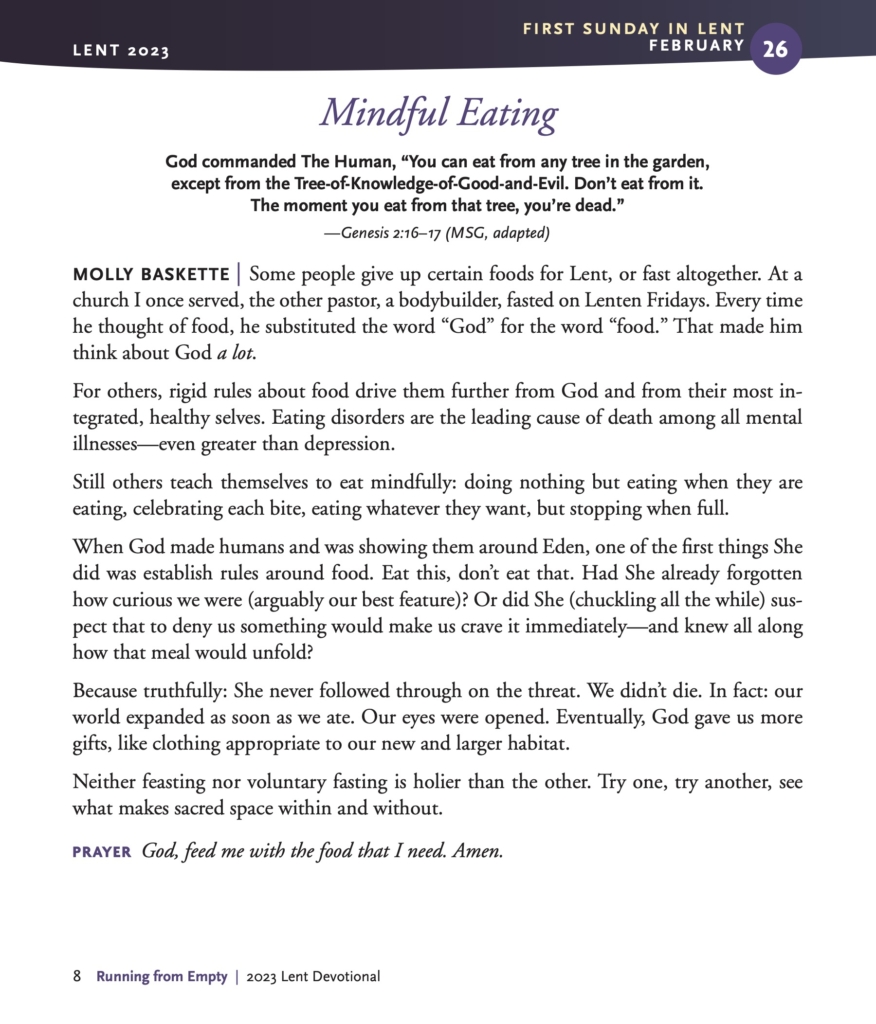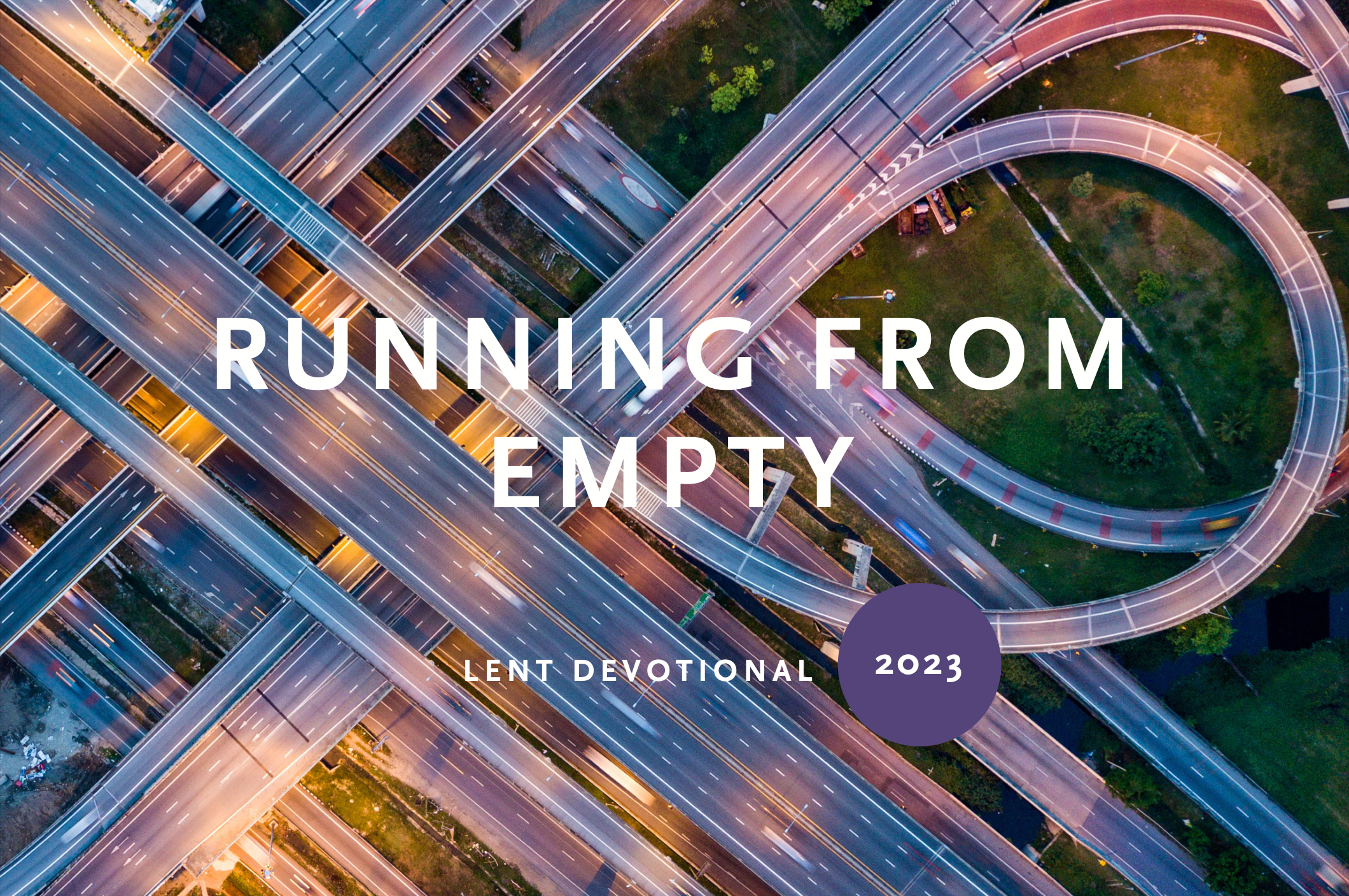
About the Writer:
MOLLY BASKETTE pastors at First Church Berkeley (CA) United Church of Christ. She is the author of several books about church renewal, parenting & faith, and spirituality.
Source: “Running from Empty” | 2023 Lent Devotional by the Stillspeaking Writers’ Group, made up of United Church of Christ ministers and writers who collaborate on resources for people in the church, outside the church, and not sure about the church.






